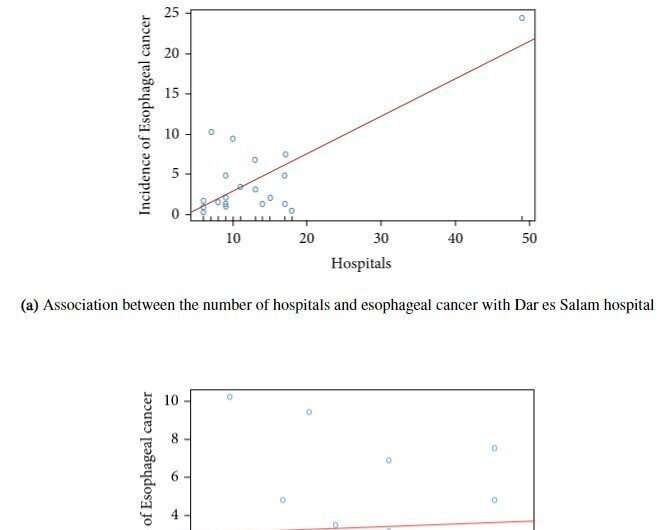
Cancer in Tanzania is an increasing health problem, particularly esophageal cancer, which represents the third most common cancer in men and the fourth most common cancer in women.
In a new study published in the Journal of Cancer Epidemiology, Associate Professor Ghada Soliman and colleagues investigated the link between poverty, access to care, health disparity and distance to a health center and survival from esophageal cancer.
Using data on esophageal cancer patients from the Ocean Road Cancer Institute (ORCI), the only national cancer hospital in Tanzania, the research team utilized datasets of all esophageal cancer patients seen at the ORCI from 2006 through 2016 to explore the role of geographic residence of patients and possible regional risk factors. The team also investigated whether the distance from the patient’s places of residence was related to delayed treatment of advanced-stage esophageal cancer patients.
The study revealed that understanding geographic differences in epidemiologic, nutritional, and demographic factors as well as distance to treatment facilities are important factors in influencing esophageal cancer risk and outcomes in this population.
“Esophageal cancer represents a dire health problem because it often presents at an advanced stage at diagnosis and limited effective treatment options are available,” Dr. Soliman explains. “Remote areas of Tanzania may not be served by a regional hospital that can provide diagnostic laboratory services and radiology. Many remote areas also lack the endoscopic equipment and personnel that would allow for greater detection of esophageal cancer.”
Source: Read Full Article
